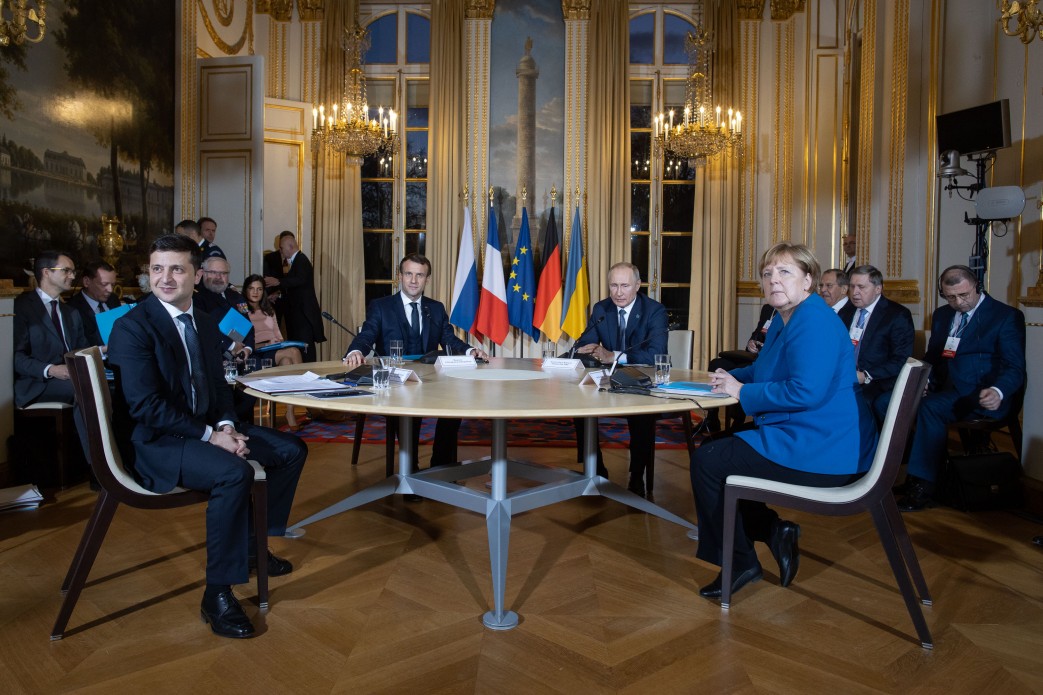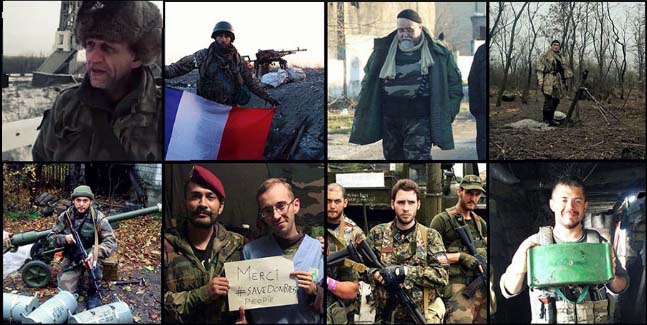On 17 November, the Russian Ministry of Foreign Affairs openly published on its website a document (archived) containing diplomatic correspondence between Russian Minister Sergei Lavrov and his French and German counterparts, Jean-Yves Le Drian and Heiko Maas.
The confidential letters leaked by the Foreign Ministry of Russia include discussions on organizing another summit in the so-called Normandy Format or Normandy Four - the negotiation framework that involves the leaders or top diplomats of Ukraine, Russia, Germany, France aiming at resolving the military conflict ongoing in the east of Ukraine since 2014.
The last Normandy Four meeting took place back on 9 December 2019 in Paris. Since then Russia didn't have any interest in participating in another summit of this kind.
During previous peace talks, Moscow presented itself as a mediator instead of a side to this conflict, as claimed by Kyiv and backed by a lot of evidence discovered throughout the years of the conflict. The conflict itself Russia presents as Ukraine's "internal conflict" rather than the long-lasting Russian aggression against Ukraine.
Now the Russian ministry explained its move to publicize the diplomatic correspondence by an allegation that the position of the Russian side and its approach to holding a meeting in the Normandy format is ostensibly regularly distorted.
"As of late, Russia’s position, its role in the settlement of the internal Ukrainian conflict and approaches to holding a Normandy format ministerial meeting have been distorted. In order to prevent further speculations, the Foreign Ministry has decided to bring out the primary sources and publish the diplomatic correspondence between Foreign Minister Sergey Lavrov, German Foreign Minister Heiko Maas and French Foreign Minister Jean-Yves Le Drian," the Russian foreign ministry wrote in their press release that accompanied the publication of the PDF document with diplomatic letters.
In the published letters, Lavrov, in particular, called the preparation of the summit's final statement a condition for holding a Normandy meeting and sent his counterparts a draft of such a statement. The Russian Ministry also published this document, which contains provisions on the organization of a "direct dialogue between Kyiv and Donetsk and Luhansk" -- something Russia has been striving for since the beginning of the war.
Kyiv opposes such a development, maintaining that establishing direct relations between official Kyiv and sham statelets of Donetsk and Luhansk "people's republics" run by Moscow in the Russian-occupied parts of eastern Ukraine would mean de-facto recognition of the occupation administrations as independent state entities.
Additionally, the Russian side also blamed Ukraine for violating the ceasefire. The published letters reveal that Germany and France responded by saying that Russia's statements were untrue and that the Russian side's proposals were guaranteed not to be accepted in the Normandy format.
Maas and Le Drian emphasized that "all parties to the conflict (i.e. including Russia, - Ed.) must fully implement the Minsk agreements," the accords signed back in the fall of 2014 and early 2015, which envisage the withdrawal of foreign armed formations.
Meanwhile, the French and German ministers disagree with the Russian designation of the conflict as "internal Ukrainian" and with Russia's mediating role in it. They also criticize Moscow's regular proposal to "establish a direct dialogue between Kyiv, Donetsk, and Luhansk" and the lack of mention of the need to allow the OSCE Special Monitoring Mission (SMM) to fulfill its mandate across Ukraine - the Mission doesn't have access to multiple areas in the Russian-occupied zone in the east of Ukraine, including a few-hundred-kilometer-long stretch of the Ukraine-Russia border uncontrolled by the Ukrainian government.
Germany and France proposed their agenda, the first item of which is "stabilization of the ceasefire and strict monitoring of the implementation of "Measures to strengthen the ceasefire of 22 July 2020." Then they sent a joint Draft Final Agreement.
In a letter dated November 16, Lavrov warned the German and French foreign ministers that he would publish correspondence with them on November 17, which his ministry did.
Read more:
- The Kremlin sets insuperable preconditions to meeting with Zelenskyy
- Kozak celebrates diplomatic victory over Ukraine in rude letter Normandy forum
- Portnikov: Next Normandy Four summit won't be soon (2020)
- Zelenskyy's first Normandy and the illusion of progress (2019)
- On eve of Normandy summit, most Ukrainians reject peace at any price
- 'The Normandy Four' has dissolved into 'three plus one', Portnikov says (2015)





